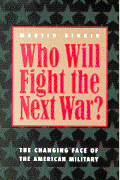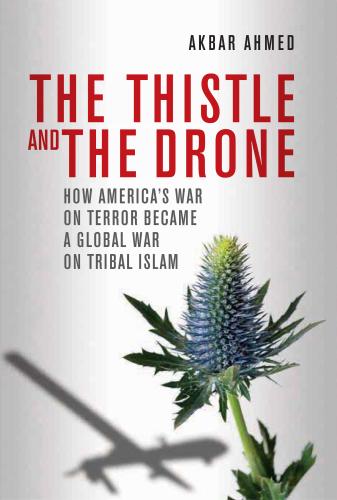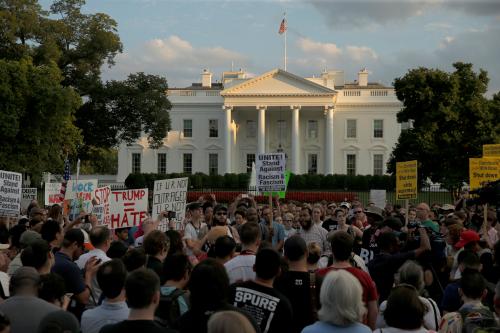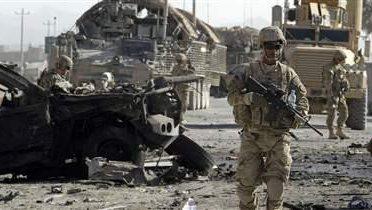Inspiration around issues of race and civility in America is in short supply. Racist, xenophobic language coming from social media platforms to the White House has corroded public discourse and widened the longstanding divides in the body politic. Rather than despair, I prefer to recall a previous commander-in-chief: President Harry S. Truman, who, on July 26, 1948, issued Executive Order 9981 to abolish discrimination on the basis of “race, color, religion or national origin” in the U.S. armed forces. This morally courageous act, by a president who served his country as a young artillery officer in World War I, would eventually lead to the desegregation of the American military.
I can only imagine what our honored veterans of President Truman’s era must think of this current moment. Now grown gray from too many wars and the relentless passage of time, these Americans are living examples of what this country can become when we are truly led from the White House, instead of battered by shrill vitriol.
Contemporary audiences might be tempted to view EO 9981 as the outcome of logic and advocacy working together to right a historic wrong, and they would be partly right. But President Truman’s actions were highly controversial at the time. Even though over a million Black men and thousands of Black women served in the U.S. military during World War II, in April 1948 then-General Dwight Eisenhower testified before the Senate Armed Services Committee that segregation was needed to protect unit cohesion (an action for which he would later express regret). Army Secretary Kenneth Claiborne Royall was forced from office in 1949 after refusing to desegregate the Army.
But Truman’s order launched the modern era of the U.S. armed forces, forging the diversity of my generation of military leaders and immeasurably strengthening American military capacity and cohesion. I use the word “forge” deliberately, as the process of integration—which was not completed until after the Korean War—was an often painful and slow process, full of bureaucratic roadblocks to true inclusion. When I was commissioned in the Marine Corps in 1976, the Marines had only been fully integrated for 16 years. As a young enlisted man and then as an officer I saw firsthand the often gut-wrenching impact of racial upheaval in the 1970s and ‘80s. Dealing with near-constant racial tension, service in the military of that day often taxed our commitment and patriotism to the limit. But as difficult as that time was, I am confident it pales with what service members of the post-World War II and Korean War era faced as they struggled to implement President Truman’s desegregation order.
Desegregation of the military was a vital chapter in a proud history of Americans of all colors and creeds serving our nation, fighting enemies whose empires were built on racist principles and racial supremacy. These American heroes fought in segregated units while their families endured racism, segregation, and even internment at home. We should never forget, for example, that German fighter pilots who came up to dispute the skies against American World War II bomber crews were rightfully petrified by the “Red Tails” of the Tuskegee Airmen. Very few American bombers accompanied by a Tuskegee airman escort were lost over Europe. Tuskegee airman and fighter pilot Benjamin O. Davis would become America’s first Black general officer in the United States Air Force.
We should never forget that during the Second World War the 442nd Infantry Regiment (also known as the “Go for Broke” regiment) of Japanese-Americans became the most combat-decorated regiment in U.S. military history (including a young then-Second Lieutenant Daniel Inouye, who lost his arm in Italy and who would eventually receive the Medal of Honor). That record holds today. But too many of the 442nd served while their loved ones languished under desert skies behind the wires of American internment camps. As well, we should never forget the segregated Montford Point Marines or the nearly all-Black crew of the American destroyer escort, the USS Mason.
And not nearly enough Americans fully understand the impact of the nearly 200,000 native-born free and formerly enslaved Blacks who fought for the Union in the American Civil War. It is not a stretch to suggest that without their numbers and this vital infusion of fighting spirit the North may not have prevailed to preserve the Union and destroy once and for all the odious institution of slavery in the United States.
Today the legacy of slavery, America’s original sin, is still alive in the foundations of many of our institutions. That President Truman needed to sign EO 9981 in the first place is a testament to how deeply racism and hate have been embedded in daily American life. As my Brookings colleague Andre Perry has rightly noted, racism in the United States is not a distraction, it is policy. Racism and discrimination are embedded in policies that limit the social and economic mobility of Black communities. Racism is baked into restrictions on voting rights that disproportionally target communities of color. The Trump administration’s moves to scale back programs that protect undocumented family members of active duty troops are racist. And President Trump’s comments about congresswomen of color, and the cowardice of those who excuse or deny the shameful legacy his words invoke, are a reminder that racism can still find purchase even within the most hallowed halls of our democratic institutions.
Racism cannot be defeated unless we confront it and condemn it wherever we see it. But President Truman’s bravery reminds us that American leadership is capable of taking action to rip out systemic racism at its odious roots. Americans deserve leadership that unites us by challenging us to do the hard work of bettering ourselves and, together, overcoming our past. Until that leadership returns, we should be inspired by the example of President Truman and look to ourselves to move forward together.
The Brookings Institution is committed to quality, independence, and impact.
We are supported by a diverse array of funders. In line with our values and policies, each Brookings publication represents the sole views of its author(s).










Commentary
Like Truman’s military desegregation order, leadership against racism starts at the top
July 26, 2019